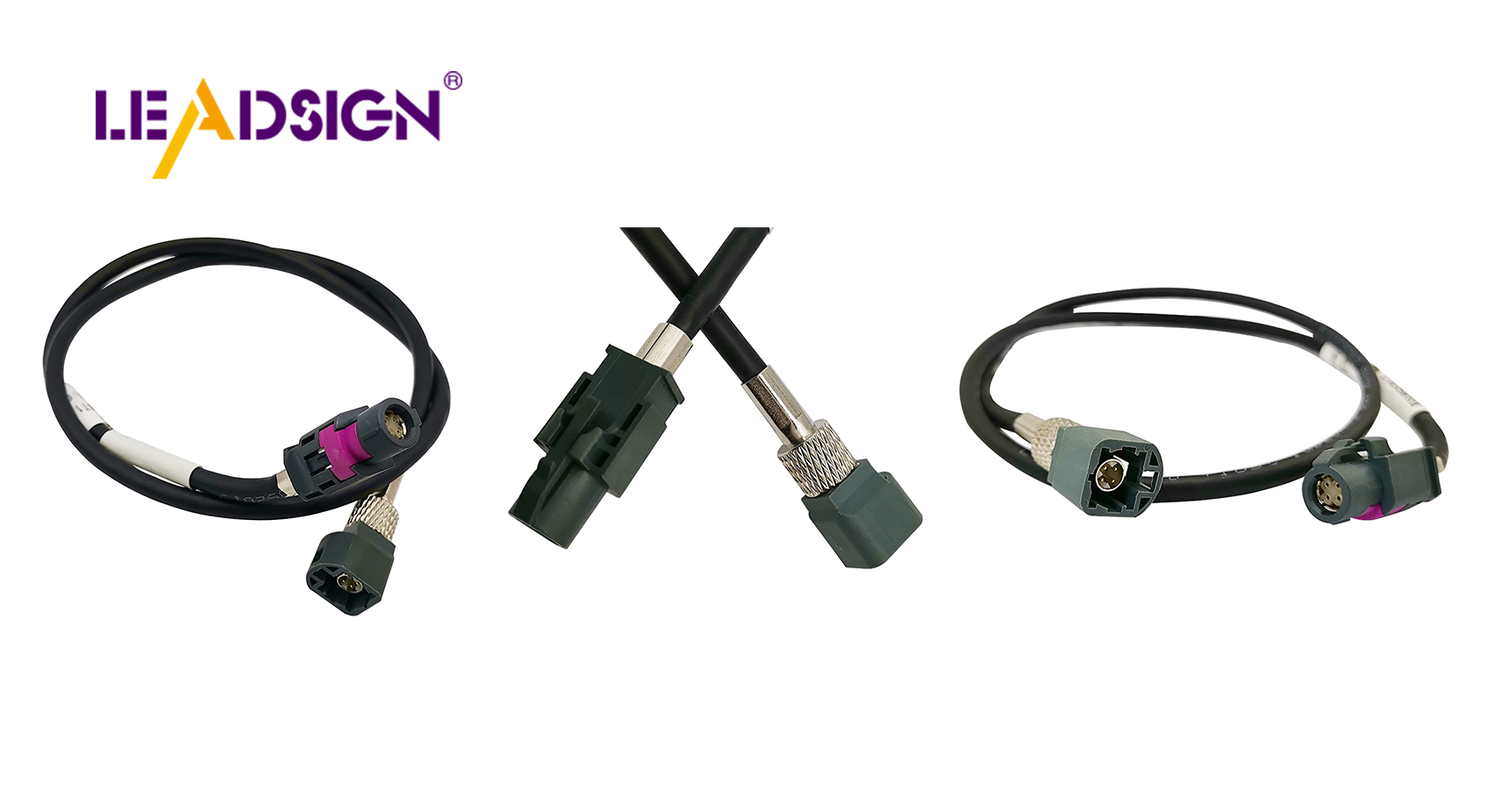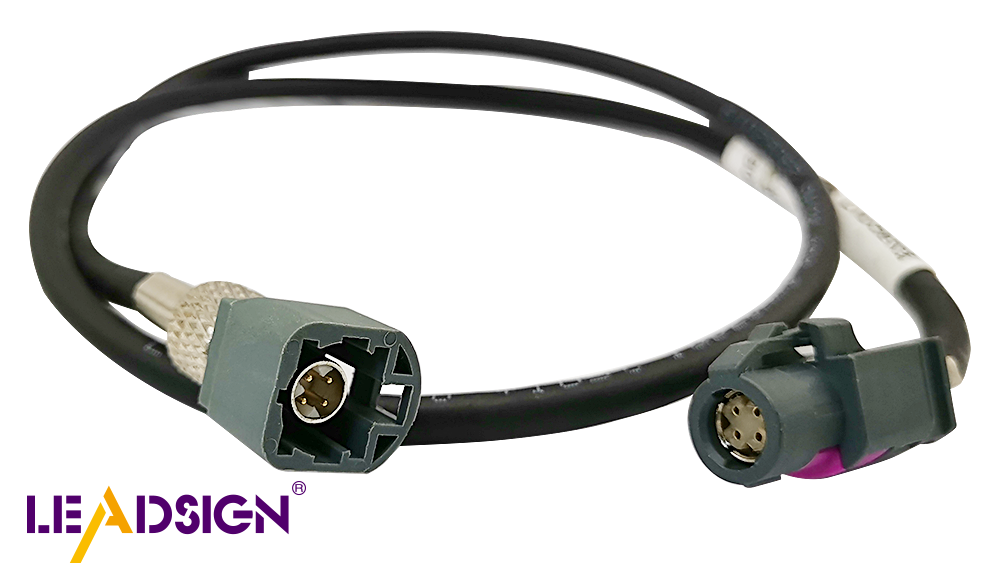Enhancing Performance with Automotive Electrical Connectors Types

Car electrical connectors are very important for your car's performance. They help different parts of the car talk to each other, ensuring everything works well. Understanding the various automotive electrical connectors types is essential for maintaining safety and efficiency. These connectors enhance your car's reliability, especially as more people seek electric vehicles and improved safety features. They play a crucial role in managing complex sensors and entertainment systems in cars, ensuring that all components work smoothly together.
Understanding Automotive Electrical Connectors
Definition and Purpose
What are automotive electrical connectors?
Automotive electrical connectors are vital parts of your car's electronics. They make sure everything works well together. These connectors join wires to create circuits, helping parts like the engine and sensors talk to each other. You can find them in places like engine control, audio systems, and lights.
Key components of connectors
Connectors have important parts that help them work. These include:
Housing: Keeps inside parts safe and insulated.
Terminals: Metal pieces that attach to wires.
Seals: Stop water and dirt from getting in.
Locks: Hold connections tight so they don't come apart.
Modern connectors handle heat, shaking, water, and signals well. This makes them strong and reliable in tough spots.
Importance in Automotive Systems
Role in safety and performance
Automotive electrical connectors are key for your car's safety and performance. They help with features like alarms, cruise control, keyless entry, and emergency brakes. By making sure electronics talk well with safety tools, they keep your car safe.
Contribution to electrical system efficiency
Connectors help your car's electric system work better. They let new tech like infotainment systems fit in smoothly. By giving good connections, they cut energy waste and boost how well your car's electric systems run.
Exploring Automotive Electrical Connectors Types

Knowing about different automotive electrical connectors types helps you pick the right one. Each type has special uses and features that can make your car work better and last longer.
Blade Connectors
Uses and applications
Blade connectors are often used in cars. You find them in fuse boxes, lights, and low-power areas. They connect wires easily, making them good for quick fixes.
Advantages and disadvantages
Blade connectors have some good points:
Ease of use: You can plug them in or out without tools.
Versatility: They fit many wire sizes.
But they also have downsides:
Limited current capacity: Not great for high power.
Potential for corrosion: Can rust if not sealed well.
Pin Connectors
Uses and applications
Pin connectors are good for high power needs. You see them in headlights and starters. They give strong power flow, which is important for your car.
Advantages and disadvantages
Pin connectors have benefits like:
High current capacity: Handle big power loads well.
Secure connections: Stay tight even with shaking.
Yet, they also have limits:
Complex installation: Need special tools to set up.
Size: Bigger than other types.
Butt Connectors
Uses and applications
Butt connectors join two wires end-to-end. Use them to fix or change car wiring. They keep wires connected safely.
Advantages and disadvantages
Butt connectors offer perks like:
Simplicity: Easy to put on with crimping tools.
Insulation: Protect against water and dirt.
However, they also pose issues:
Permanent connection: Hard to take apart once joined.
Limited flexibility: Not good if you need to unplug often.
By learning about these connector types, you can choose wisely. Each type has its own pros and cons, so think about what you need before picking one.
Specialty Connectors
Uses and applications
Specialty connectors have special jobs in cars today. They are used in advanced systems like ADAS, infotainment, and self-driving tech. These connectors send data fast, helping car parts talk well. For example, S-LVDS connectors are great for quick data sharing.
Besides sending data, specialty connectors help with power and signals in cars. Cable-to-wire connectors keep power flowing without breaks. This helps your car's electric system work better. Picking the right specialty connector can make your car's electronics work more reliably.
Advantages and disadvantages
Specialty connectors have good points:
High-speed data transmission: They move data quickly for new car tech.
Versatility: Work in many places like entertainment or safety.
Enhanced communication: Help power and signals move well.
But they also have downsides:
Complexity: Need special skills to set up and fix.
Cost: More pricey than regular ones because of their features.
Knowing about different automotive electrical connectors types, including specialty ones, helps you choose wisely for your car. The right connector boosts how well your car works and keeps everything running smoothly.
Best Practices for Effective Use
Choosing the Right Connectors
What to Think About When Picking Connectors
When picking car electrical connectors, think about a few things. First, check the environmental conditions where they will be used. Hot places, shaking, and wetness can wear them out. For example, Triton Series Automotive Connectors by ITT Inc. are good for tough spots because they seal well and resist shaking.
Next, look at your car's electrical needs. High-voltage connectors like those from Continental AG work well in electric cars. They help move power better and keep things cool.
Finally, know the specific job of the connector. Different types do different jobs like engine control or sound systems. Picking the right one helps it last longer and work well.
Matching Connectors to Jobs
Matching connectors to their jobs is important for keeping things running smoothly. For instance, TE Connectivity Data Connectors are great for new cars that need fast data sharing. These help make driving safer and more fun with cool tech features.
When you pick connectors, make sure they fit your car’s needs. This way, everything works its best and keeps your car running well.
Tips for Installing
How to Install Correctly
Installing correctly is key for strong connections. Use the right tools like crimping tools to attach wires firmly.
Make sure connectors click into place properly so they don’t come loose later on. Also, use special grease to stop rust and help connections stay good.
Mistakes You Should Avoid
Avoid mistakes when installing to keep everything working right. Don’t use wrong tools; they can break connectors or mess up connections.
Don’t force connectors; this can cause bad fits or weak links. Also, don’t skip sealing them properly; water can get in and cause rust or failures if not sealed well.
Keeping Things Working Well
Regular Check-Ups
Checking your car’s electrical parts often helps them last longer. Look at connectors now and then for damage or dirt that could slow them down.
Use grease on them to stop rusting and keep things moving smoothly.
Fixing Common Problems
Finding problems early saves money on repairs later. Look for rust signs like color changes or spots and fix them fast.
Loose parts might cause weird issues; make sure all are tight enough. If problems stick around, ask an expert for help so your car stays in top shape.
Choosing the right car connectors is important for your car to work well. Pick connectors that fit your car's needs to keep it reliable and efficient. Installing them correctly and checking them often makes them even better. Metal-to-metal connectors are strong, so they work well in cars. Wire-to-wire connectors help new cars run smoothly and efficiently. By following these tips, you make your car safer and perform better. A good electrical system helps you drive more safely and smoothly.
See Also
Maximizing Automotive Data Flow With Innovative Connectors
Boosting Data Transfer: Significance of Fast Automotive Connectors
Improving Automotive Data Flow Using FAKRA PCB Connectors
Strengthening Automotive Communication Through FAKRA PCB Connectors

